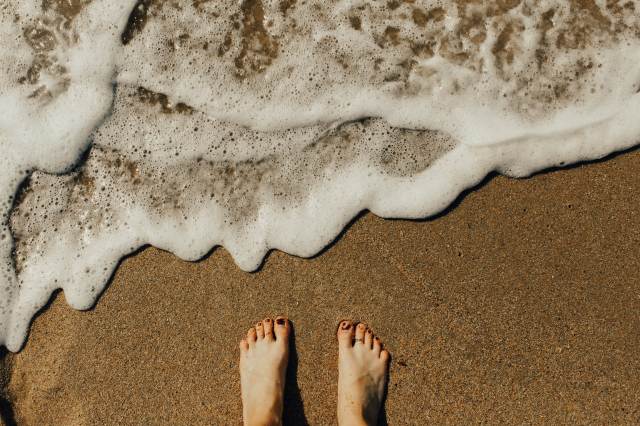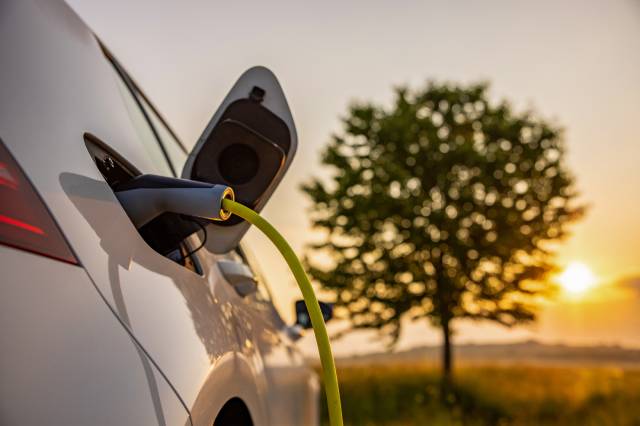22 tips for going plastic free
Well for starters, don’t be too hard on yourself. We live in a plastic world; it’s fairly unavoidable. So if you fall off the wagon and forget to refuse those two straws in your Saturday afternoon green juice, don’t stress. Just learn from your experience, and start again.
Choosing to be plastic-free means you’ll often be choosing the least convenient choice. But over time, these decisions will become a habit. You’ll learn to become more prepared and planned, and you’ll also consume a lot less and save some money.
Since the ABC series War on Waste aired in May, it seems the collective conscience of Australians has increased around our waste. More people are drinking their morning coffee from a reusable cup, And earlier this month, Coles, Woolies and Harris Farm all announced they would phase out the use of single-use plastic bags – a direct result from public pressure.
Plastic is bad for the environment on every level. Not only does it pollute waterways and create excess landfill, but plastic uses a ridiculous amount of resources just in order to be manufactured. In fact, it takes about 12 million barrels of oil to manufacture the 102 billion plastic bags used in the United States alone.
Each year, the average Australian produces 1.5 tonnes of waste a year. Recycling is a fairly standard practice across households in Australia but there are still plastics that cannot be recycled due to their chemical composition. It’s these types of plastics that we should all aim to avoid wherever possible. Generally, the most difficult plastics to recycle are the softest types, the ones that you can easily scrunch in your hand, such as food packaging (think pasta packets or individually wrapped portions of food). Polystyrene is another ubiquitous culprit that never gets recycled in the waste stream.
So let’s take this plastic-free, minimal waste momentum to the next level. Start small, take your time and build on your good habits one-by-one.
1. BYO bag
Always take your own shopping bags to the supermarket or shops. These don’t have to be the canvas, environmentally friendly kind if you don’t have any. Even just reusing plastic bags from your own kitchen cupboard can still help to reduce waste.
Bonus Tip: Recycle any soft plastics you do accumulate in the collection kiosks in Coles and/or Woolies.
2. Use a thermos or a KeepCup
If you regularly find yourself buying takeaway coffee, take your own clean thermos and avoid adding to the styrofoam and plastic-lined cardboard rubbish pile. Cafe businesses usually appreciate not having to buy their own cups to hand out, and the environment appreciates being cared for. Some cafes will even give you a discount!
3. Avoid individually wrapped products
Don’t buy food in pre-portioned packaging, buy in bulk instead! Instead of buying 15 mini packs of biscuits or chips for school lunch, buy a large single packet and portion it into containers. Apply this theory to yoghurt, custards, and anything else that can be bought in a larger size. Every bit counts!
4. Don’t buy fruit and veggies wrapped in plastic
Like buying packaged food in bulk, avoid buying pre-packed or pre-weighed fruits and vegies. You know the kind – cling wrapped bananas on foam trays and the like – unnecessary and wasteful. Instead, choose from the loose section and put them straight in the fruit basket or fridge when you get home. I mean really, why does a banana need any more packaging than what nature has already provided?
5. Swap out the plastic wrap for beeswax wraps or containers
Invest in some good, air tight storage containers that are both microwave and freezer safe. It’s a good idea to have multiple containers in a range of sizes to accommodate for all the different types of food you’ll be storing, as well as snack sized containers for lunch boxes and storing liquids, dressings, and so on. As a major health bonus, the phthalates in plastic wrap are really bad for you, so you’ll be doing yourself, your friends, and family a favour too. You can also get reusable wax-lined cloths that work the same way as glad wrap, and look great too – check out Honey Bee Wraps.
6. Buy your meat or cheese from the deli and ask to use your own container
Pre-packaged meat and cheese is usually sold in plastic or styrofoam trays, but if you buy direct from the deli butcher, you can bring your own container to transport your goodies.
7. Have a bottle on hand
Plastic water bottles are one of the most common items in the world. Don’t help perpetuate the market for this ridiculously wasteful product; take your own drink bottle when you’re on the go. Water comes out of the tap for free, so why on Earth would you pay for it?!
8. Refuse the straw! Use your lips.
They may seem small and harmless, but they accumulate incredibly quickly over the space of a night out drinking. If you have to drink with a straw, try to reuse it over the course of your night. Even better, invest in a reusable straw, like the stainless steel or glass ones from Dharma Straws. We’ve found the stainless steel ones are a bit more durable, as glass isn’t the safest thing to carry around with you.
9. Ditch disposable plates
If you’re having a BBQ or party – don’t freak out – but avoid using disposable cups, plates, and cutlery. Use your own glasses and ceramic plates and wash them. If you must use disposable items, opt for biodegradable ones made from cornstarch or paper. But if your Aunt Dora is insisting that really do have to use plastic plates, use the more durable kind so you can wash and reuse them.
Bonus Tip: If you write people’s names on their glasses you’ll have less washing up to do. Plus, you get to make up fun names for your guests – hello ‘Sunshine’!
10. Grow your own fruit, veggies and herbs
Fresh herbs and salad leaves almost always come wrapped in plastic at the supermarket. Try growing your own herbs and salad leaves at home to enjoy fresh greens when you want!
11. Get to the farmers’ markets or bulk food store
It really is a lovely weekend ritual to get along to your local farmers’ market, where you’ll find farm-fresh produce with no plastic packaging that’s come straight out of the dirt, into the farmer’s van, to you. Another plastic-free grocery store is a bulk food store – to get started, check out if there’s a Scoop Wholefoods or a Naked Foods near you.
12. Buy refills
Rather than buying a new product each time, start buying refills for your cleaning supplies. If you use one spray bottle a month then that’s 12 spray heads a year that you don’t need. Reuse your spray head wherever possible! This also applies to laundry detergents and fabric softeners. Always refill rather than chuck it away!
13. Take your own container to the food court instead
And refuse the plastic cutlery in favour of your own.
Personal care
14. Swap your plastic toothbrush for a bamboo toothbrush.
Never heard of a bamboo toothbrush before? Start by checking out Environmental Toothbrush and Biome.
15. A menstrual cup is not as scary as it sounds
It might seem daunting, but a cup is a great way to reduce your plastic waste (and save roughly $4,000 over a lifetime). Join the tribe of those who swear by the Juju cup.
16. Use an electric shaver
The plastic in disposable razors isn’t recyclable and doesn’t biodegrade, so they’re very difficult to dispose of. When you invest in a good electric razor, you’ll actually save money in the long run from not having to buy shaving cream, lotion, and replacement blades quite so often.
17. Try natural scents
If you’re a big fan of the air freshener spray can, try out some non-aerosol versions, such as this one from Orange Power. For extra brownie points, you could even make a DIY room freshener spray like this one here. You could also try burning scented candles, incense, or essential oils instead.
18. Step away from the microbeads
If you’ve never heard of microbeads before, make sure you have a read about them here. These tiny beads are made from a plastic based substance and contribute to a lot of extra work at water treatment plants.
Everyday life
19. Don’t throw away old toys
Recycle old plastic children’s toys. If they’re not broken, don’t throw them away. Consider giving them to a local op shop, daycare, or kindergarten instead. Search for a toy library in your area to borrow from or donate to.
20. Don’t throw away phones
Don’t throw away old mobile phones. Most post offices have a special bin for recycling all mobiles and their accessories. If you can’t find one, look carefully in the box of your new phone – there should be a special recycling postage bag included in which you can place your old phone. Check out MobileMuster for more info.
21. Avoid lighters
If you really need a lighter, stop buying plastic lighters. Instead, purchase a packet of matches or a refillable lighter that can be reused again and again.
22. Invest in cloth nappies
Can you believe that 3.75 million disposable nappies are used each day in Australia and New Zealand? If you have a bub, save the disposable nappies for emergencies and invest in a pair of good cloth ones instead. Up to 4% of landfill in Australia is full of nappies, which aren’t likely to decompose in your child’s lifetime – or even your grandchildren’s lifetimes (about 150 years). Yes, you may have to use extra products for sanitising and washing, but there’s nontoxic laundry powders, that come in a cardboard box, that have less impact on the planet than plastic nappies. Just make sure you actually use the cloth nappies you purchase, as if you just leave them in a drawer somewhere the resources required to make them mean it isn’t worthwhile. The CHOICE website has some of the best information about nappies if you want to learn more.
Bonus: Your initial outlay for cloth nappies might seem expensive, but in the long run you’ll save wads of cash. And if you reuse the nappies for another child, you’ll be saving even more.



